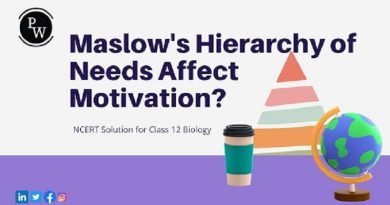How to Choose the Right Ph.D. in Medicine for You
For some career pathways, vocational or otherwise, an undergraduate degree is as high a qualification as needed to climb the proverbial ladder of industry.
For others, however, like pursuing higher and more influential careers in medicine, a postgraduate degree is not just recommended; it is almost mandatory. With this in mind, continue reading for comprehensive help, advice, and guidance on how to choose the right postgraduate program in healthcare for you.
Why Pursue a Ph.D.?
There genuinely is a myriad of fantastic and life-affirming reasons to pursue a Ph.D. in your chosen field, and when it comes to medical-related PhDs, these are perhaps the most useful and beneficial of all.
The pursuit of a Ph.D. in medicine will afford you the following benefits, to name just a few:
- Becoming an out-and-out expert in your particular field of medicine and healthcare
- Connecting with industry leaders and professionals
- A huge career boost and professional development
- Financial benefits, including a heightened salary
- A fabulous way to put your hard-earned research into exciting practice
- Being able to study at your own pace and way of working
- Being your own leader
- Indulging in your specific interests and passion in your chosen field of medicine
- Copious and highly unprecedented travel opportunities
Ph.D. in Medical Research
If you are a nurse or other medical professional, one of the most beneficial and highly exciting yet challenging doctorates to choose from is that of a Ph.D. in Medical Research.
Such a Ph.D. is absolutely perfect for those medical experts who want to build on their already impressive research skills even further and to develop an exceedingly high level of methodical research skills that can be directly applied to their own individual research projects.
Usually, a Ph.D. in medical research involves studying for four to five years if you choose to do the program on a full-time basis and between seven and eight years on a part-time study schedule.
Ph.D. in Psychiatric/Mental Health
Working as a professional mental health nurse is one of the most rewarding yet ultimately challenging nursing specialisms, and it is incredibly common and perfectly understandable that often, nurses who have dedicated to a career in nursing for life do not stay as psychiatric nurses for their entire career.
Usually, a Ph.D. in psychiatric and/or mental health takes approximately three years to complete if the individual is studying the program on a full-time basis or around five to six years from start to finish on a part-time study schedule.
Such a Ph.D. brings together in harmony both the practice of mental health nursing and the detailed and numerous theories behind that practice and includes incredibly intensive modules on matters such as the current most important priorities for mental health nurses and doctors and psychological models for each separate psychological disorder.
Ph.D. Advanced Practice Registered Nurse
If you are passionate about and dedicated to a career proverbially ‘higher up’ in the administration and running of a hospital or other medical institution, then it is strongly advisable to peruse the reputable and renowned nurse practitioner certificate programs available from prestigious and established online universities, as academic advancement is the best way to make this dream a reality.
In addition to the successful acquisition of this particular qualification, it would then be pertinent to carry on your education by deciding to embark upon a Ph.D. in advanced practice nursing. As a Ph.D. is simply the highest level of academic education an individual nurse can achieve, you will then be perfectly placed to make real and substantial suggestions and changes to the section of the healthcare system in which you are based.
Ph.D. in Preventative Medicine
Naturally, after the devastation and downright turmoil caused by the effects of the worldwide coronavirus pandemic on the whole of this country’s healthcare system as well as those of countries overseas, the academic area of preventative medicine has never been so under the spotlight.
A great deal of study and research time in a Ph.D. in preventative medicine is taken up with the training of students to become extremely well-versed in medical science and the way in which it can be applied in research settings to aid the overall health of the population.
Modules within a Ph.D. in preventative medicine can consist of the following but obviously vary depending on where you decide to study for the program:
- Cross-cultural health
- Social marketing in the healthcare system
- Tobacco control
- Physical inactivity and activity
- Obesity in both adults and children
- Health inequities
- Adolescent health
- Chronic diseases
- Terminal illnesses
- Nutrition
Additionally, such Ph.D. students are usually heavily embroiled in dissemination, impact, intervention, evaluation, and epidemiological studies and use a combination of both quantitative and qualitative systems and tools to gather their research.
Ph.D. in Medical Research
Finally, another incredibly rewarding and endlessly fascinating Ph.D. program upon which to embark on is that of a Ph.D. in medical research.
If you are someone who wants to truly challenge oneself and to push the boundaries of not only your academic skills and acumen but also your career goals and targets, wanting to make a noticeable positive change and difference to the nursing and healthcare provisions of the country, then this Ph.D. is the one for you.
Studying for this particular doctorate will ensure that your own individual research skills are frankly second to none, and not only that, but you will be able to freely explore not only your dissertation or thesis topic with these newly acquired insights and skills but also apply them to your daily working life.
Another stand-out advantage of choosing to study for a doctorate in medical research is unprecedented access to a hugely varying range of industries and specialist fields and opportunities to apply and work in the top echelons of medical research facilities.
Additionally, you will also build strong and mutually beneficial professional connections and networks while conducting your research and develop numerous, highly transferable soft skills as well as specialist and impressive technical skills.




